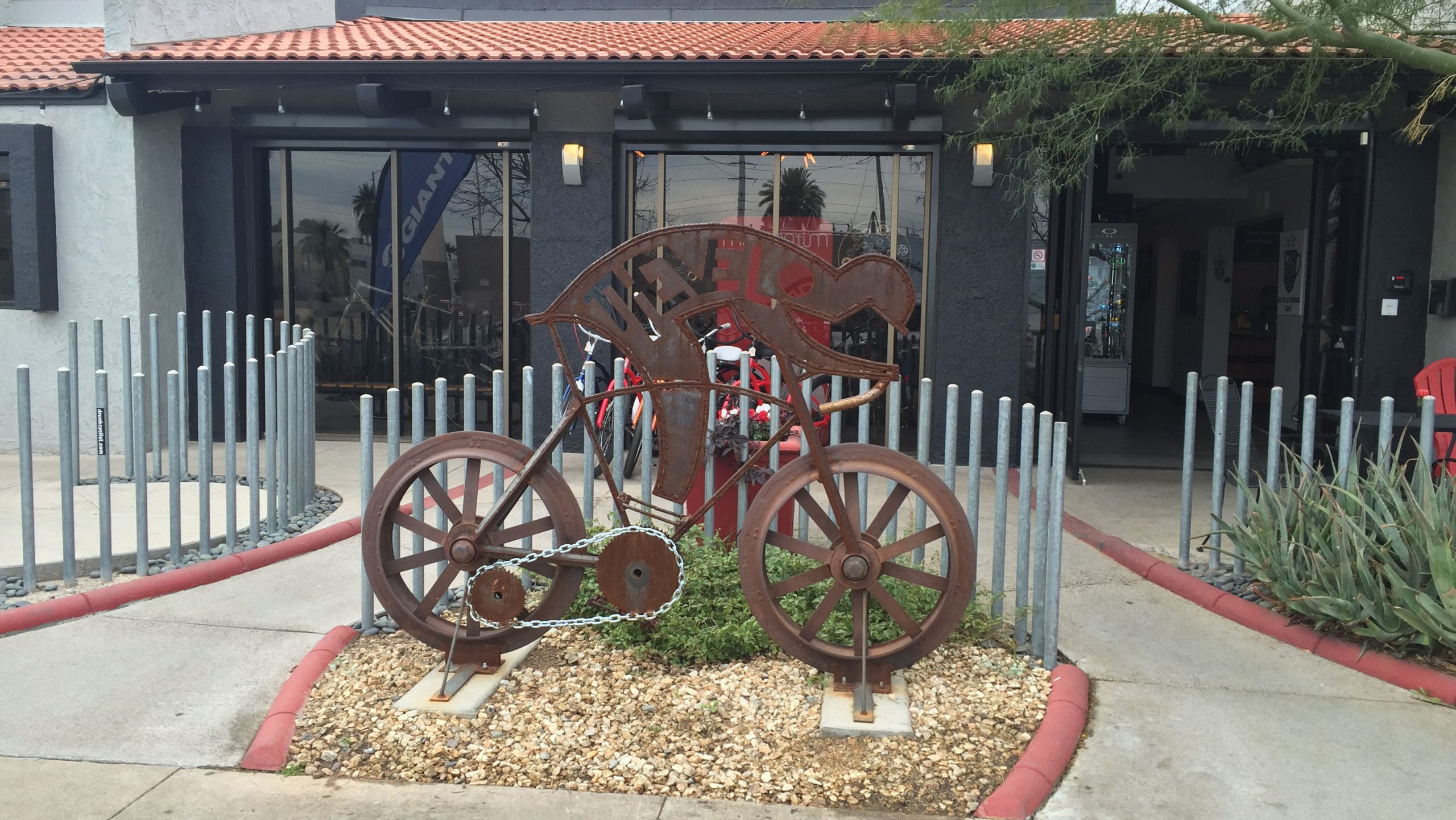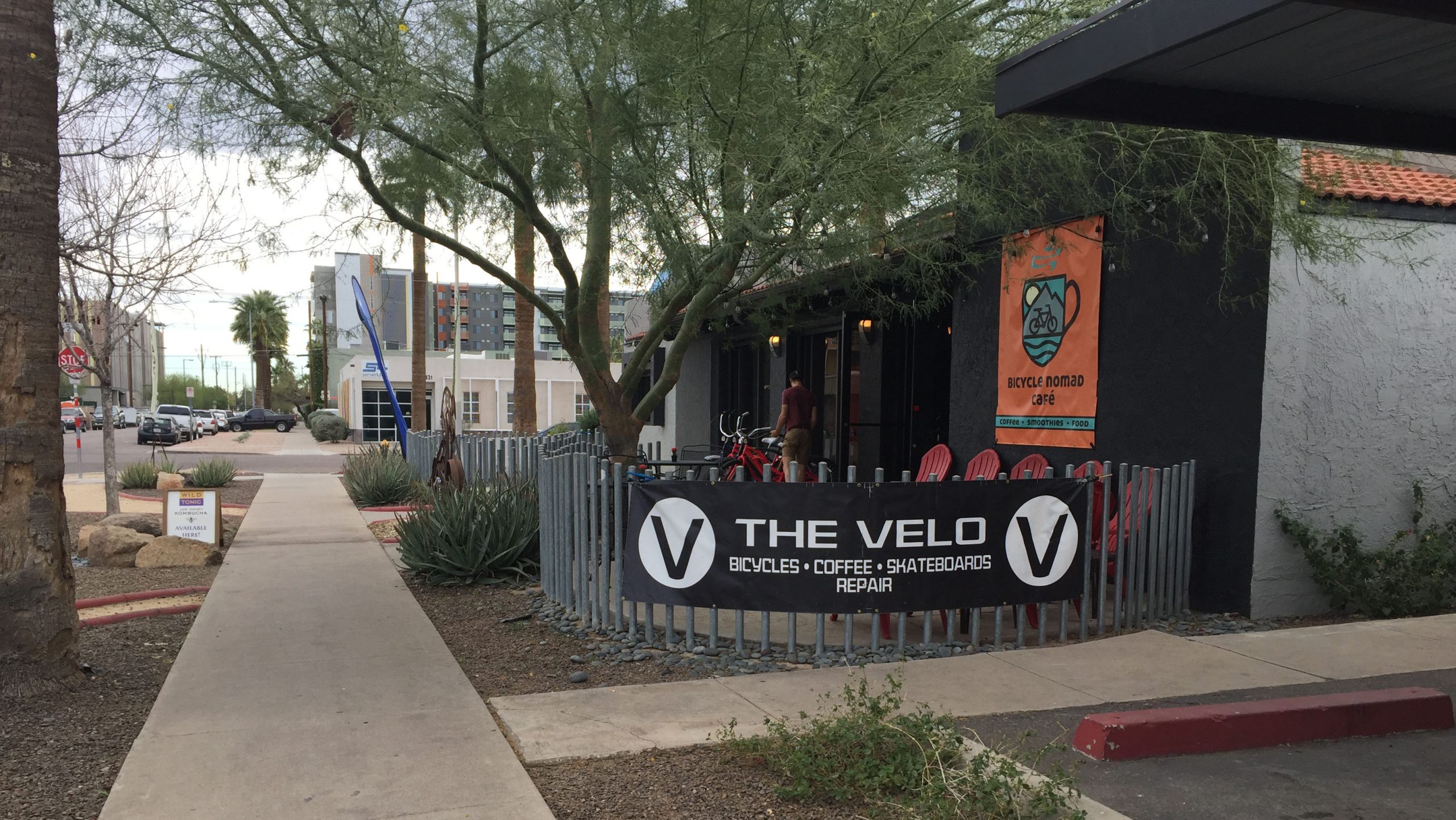
The Velo in downtown Phoenix opened last year. One of the managers, Justin Bush, said the business is growing.
(Photo by Zac Pacleb/Cronkite News)

While one survey indicated that local businesses in Arizona are thriving, they struggle to find approval for a bank loan more than the national average. The Velo in Phoenix obtained funding from four investors. (Photo by Zac Pacleb/Cronkite News)
A recent national survey indicated an uptick in revenue for independent businesses nationwide. And in Arizona, those numbers were even higher.
Survey respondents in Arizona said they saw revenue grow 7.1 percent, about half a percent higher than the national average. The Institute for Local Self-Reliance in partnership with the Advocates for Independent Business conducted the survey, which was released this month.
The survey gathered data from more than 3,200 independent business, including about 560 from Arizona, according to Local First Arizona, which promoted the survey’s findings.
Read more:
Big banks dominate lending market, but some small businesses find success with community banks
Although many businesses have found success, Arizona independent businesses struggled with obtaining a bank loan, according to the survey. In Arizona, 45 percent of the surveyed businesses failed to secure a bank loan over the past two years, higher than the national rate of about 33 percent.
James Christensen, president and CEO of Mesa-based Gateway Bank, cited the lack of a strong community bank presence in Arizona for the failure rate.
Large banks approved about 22 percent of small-business loan requests nationwide, while small banks approved those requests at a 49 percent clip, according to Biz2Credit’s Small Business Lending Index.
Charles Ruscher, senior lecturer in finance at the University of Arizona, said big banks are less likely to approve a loan request from a small business as opposed to chain businesses. And that puts small businesses at a disadvantage.
“Independent local businesses have fewer financing options than do larger chain stores,” Ruscher said.
Ruscher added that chain stores have more financing choices because they usually have more options to go to geographically because they are normally nationwide establishments.
Christensen said that’s why community banks are so important: They can provide a small business more help in figuring out how to obtain loans and other financial aid.
Ruscher agreed.
“Community banks play an educational role in assisting businesses with their financing requirements more so than do national banks,” Ruscher said. “In addition, the loan underwriting for most national banks is centralized in hubs geographically, far away from the location where the loan will be financed.”
It is in this realm where Christensen tries to help.
“I think we give (small businesses) a path and get them organized,” Christensen said. “There’s so many things to think about that – especially if you’ve never been a small business person before – how to handle your sales tax, how to handle your payroll tax, how to handle your payroll processing, your insurance, on and on and on. There’s just so many things to think about, and I think the community banker can guide them to a certain degree a whole lot further than the big banks do.”
Businesses often turn to other sources for financing.
For example, The Velo, a locally owned bike repair and coffee shop that opened last year, was financed by four investors, something manager Justin Bush said made a difference in its first year of operation.
“It makes people – when it’s their own money – they’re a lot more in tune with how it’s being used,” Bush said.
Still, Arizona seems to be doing as well as any other state when it comes to growth.
“We’ve had growth that’s comparable nationwide. We’re doing very well even on our own expectations. We’re very happy with the growth,” said Scott Hermanson, practice manager of the Scottsdale Cat Clinic.